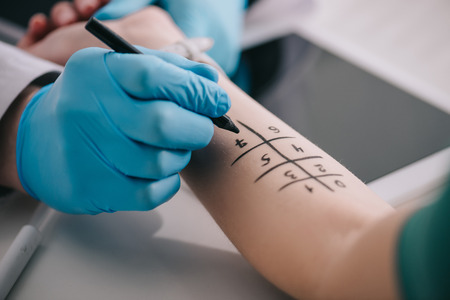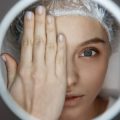1. Introduction: The Shift in British Skincare Culture
The United Kingdom is currently experiencing a notable transformation in the way skin health is perceived and prioritised. Traditionally, skincare routines in Britain centred on over-the-counter products and beauty trends, but there has been a significant surge in public awareness surrounding medical-grade skincare. This movement reflects a shift away from cosmetic quick fixes towards evidence-based, professional solutions for maintaining healthy skin. British consumers are now more informed, discerning, and proactive, seeking out scientifically backed formulations and expert guidance to address not just appearance but the underlying health of their skin. This pivotal change underscores a broader cultural emphasis on holistic wellness, self-care, and long-term results—signalling the beginning of what many are calling a true ‘skin health revolution’ across the UK.
2. Defining Medical-Grade Skincare
Understanding what sets medical-grade skincare apart from cosmeceuticals and the familiar products found on the UK high street is crucial in navigating the current skin health revolution. While all three categories promise skin benefits, their formulation, oversight, and efficacy differ markedly—particularly when viewed through the lens of UK regulations and professional standards.
Medical-Grade vs Cosmeceuticals vs High-Street Products
| Category | Definition | Regulation in the UK | Where to Access | Active Ingredient Strength |
|---|---|---|---|---|
| Medical-Grade Skincare | Formulated with clinically proven ingredients at concentrations backed by scientific research; designed to target specific skin concerns under professional supervision. | Regulated as medical devices or prescription-only medicines by the MHRA (Medicines & Healthcare products Regulatory Agency) if they make therapeutic claims. | Exclusively available via clinics, dermatologists, or registered practitioners. | High (often prescription-strength) |
| Cosmeceuticals | Sit between cosmetics and pharmaceuticals; contain active ingredients but at lower concentrations than medical-grade products. | Classified as cosmetics; must comply with UK Cosmetic Products Regulation but are not subject to medical oversight. | Available over-the-counter in pharmacies, beauty salons, and online retailers. | Moderate (higher than high-street, lower than medical-grade) |
| High-Street Skincare Products | Mainstream cosmetics intended for general maintenance and mild improvements of skin appearance. | Regulated as cosmetics; must be safe for general use under normal conditions but cannot make strong therapeutic claims. | Easily accessible in supermarkets, chemists, department stores, and online. | Low (safe for unsupervised consumer use) |
The UK Regulatory Landscape
In the UK, the distinction between these product categories is more than marketing. The MHRA enforces strict guidelines for products making medical or therapeutic claims. Only registered professionals can dispense medical-grade skincare, ensuring patients receive tailored advice based on clinical need. Cosmeceuticals and high-street ranges fall under cosmetic regulations, which focus on safety rather than proven efficacy. This difference is central to why medical-grade skincare is gaining traction among discerning British consumers seeking measurable results and professional oversight.
![]()
3. Driving Factors Behind the Trend
The surge in popularity of medical-grade skincare across the UK is not merely a fleeting fad—it is underpinned by several compelling cultural and technological shifts. A primary driving factor has been the widespread accessibility of digital education. British consumers are now more informed than ever, with dermatologists, pharmacists, and skincare experts sharing reliable advice through online platforms, webinars, and social media channels. This democratisation of knowledge empowers individuals to make educated decisions about their skin health and seek out products that genuinely deliver clinical results.
Another significant influence is the pervasive culture of social media influencers. In the UK, beauty and lifestyle influencers have become trusted voices, often bridging the gap between complex scientific information and everyday application. Their candid reviews, before-and-after photos, and transparent discussion of their own skin journeys resonate with audiences seeking authenticity. This peer-driven validation process has accelerated the adoption of medical-grade products as followers look for proven efficacy rather than marketing hype.
Finally, there has been a notable increase in access to professional advice. High-street clinics, virtual consultations, and pharmacy-led skincare services have become commonplace across Britain’s cities and towns. Such accessibility means that individuals can receive tailored recommendations without long waiting times or prohibitive costs. This intersection of expert guidance and consumer empowerment has set a new standard in British skincare routines, cementing medical-grade products as essential tools for maintaining healthy, resilient skin.
4. Trusted Clinics and Practitioners: The Local Scene
Across the UK, the rise of medical-grade skincare is closely tied to the increasing presence and influence of registered clinics, dermatologists, and aesthetic nurses. These professionals are not only providing access to advanced products and treatments but are also setting new standards for skin health and safety in both major cities and smaller communities. Their regulated expertise reassures clients that they are receiving evidence-based advice and medically supervised care, which stands in stark contrast to unregulated beauty salons or online retailers.
The Role of Registered Clinics
Registered clinics have become key players in the British skin health revolution. They offer a wide array of treatments using pharmaceutical-grade ingredients, supported by robust clinical evidence. Many clinics employ multidisciplinary teams—including consultant dermatologists, aesthetic doctors, and specially trained nurses—who work collaboratively to tailor regimens for individual skin needs.
Comparison: Registered vs. Non-Registered Providers
| Aspect | Registered Clinics/Practitioners | Non-Registered Providers |
|---|---|---|
| Qualifications | GMC/NMC registered, trained in dermatology/aesthetics | Often uncertified or minimally trained |
| Treatment Safety | Strict protocols, medical oversight | Lax standards, higher risk of complications |
| Product Access | Prescription-only, medical-grade formulations | Mainly over-the-counter or cosmetic grade |
| Aftercare & Follow-up | Personalised support, emergency response if needed | Limited or no aftercare provision |
A Network from London to Leeds—and Beyond
This movement is not confined to London’s Harley Street. From Glasgow’s respected city-centre clinics to innovative practices in Bristol, local skin health hubs are gaining traction nationwide. In places like Manchester and Birmingham, aesthetic nurses play a vital role in bridging high-quality care with community accessibility. Even smaller towns now boast CQC-registered facilities, reflecting the growing demand for safe, effective skin interventions guided by healthcare professionals.
The Impact on Everyday Brits
The availability of trusted clinics ensures that individuals across socio-economic backgrounds can access reputable advice and genuine medical-grade products. This democratisation of skin health is helping to dispel myths perpetuated by social media “influencers” and is encouraging a more science-led approach to skincare throughout the UK.
5. Consumer Experiences and Results
The real-world impact of medical-grade skincare in the UK is best illustrated through the voices of those who have made it part of their daily routines. The British climate, with its frequent dampness, brisk winds, and unpredictable temperature swings, presents unique challenges for skin health—ranging from persistent dryness and eczema flare-ups to aggravated rosacea and adult acne.
From Frustration to Confidence: Real Stories
Take Sarah from Manchester, for example. After years of battling hormonal acne worsened by damp city air and stress, she turned to a dermatologist-recommended regimen featuring prescription-strength retinoids and a gentle, pH-balanced cleanser. “I’d tried all the high-street brands,” Sarah recalls, “but nothing shifted the deep spots until I moved to medical-grade products. My skin hasn’t looked this clear since my teens.”
Managing Sensitive Skin in a Challenging Climate
Tom, a primary school teacher from Bristol, shared his struggle with chronic eczema that would flare up every winter. He credits his improvement to a targeted routine prescribed by his GP: “With ceramide-rich moisturisers and clinically tested serums, my skin feels protected even on frosty mornings. I spend less time worrying about itching at work.”
Building Trust Through Results
The consistent theme among UK users is trust—trust in professional advice and evidence-backed formulations. Many consumers appreciate that these products are often backed by robust clinical data and tailored for individual needs. As Emma from Glasgow puts it: “It’s not about instant miracles; it’s about steady progress. My rosacea is calmer, my confidence is up, and I feel more in control.”
These authentic experiences underscore why the medical-grade skincare movement resonates so strongly in Britain. It offers hope—and tangible results—for those whose skin demands more than generic solutions can provide.
6. Navigating Choices: What to Look For
When considering medical-grade skincare in the UK, British consumers face a landscape filled with both opportunity and complexity. To ensure you’re making informed decisions that truly benefit your skin health, it’s crucial to approach this trend with a discerning eye. Here are some practical guidelines tailored for navigating the medical-grade skincare revolution:
Product Verification: Trust but Verify
Medical-grade products distinguish themselves by containing higher concentrations of active ingredients, and they often undergo rigorous clinical testing. In the UK, always check for MHRA approval or compliance with relevant EU standards if applicable. Look for transparent labelling—products should clearly state their active ingredients, concentrations, and intended use. Be wary of brands making unsubstantiated claims or lacking scientific backing; reputable brands will provide accessible research or clinical data supporting their efficacy.
Consultation: Seek Professional Guidance
The consultation process is vital when adopting a medical-grade regimen. In Britain, it’s recommended to consult with a GMC-registered dermatologist or trained aesthetic practitioner. These professionals can assess your individual skin type, underlying concerns, and medical history before recommending specific products or treatments. Avoid purchasing prescription-strength products online without a consultation—legitimate providers will always require a thorough assessment prior to sale.
Choosing Reputable Clinics and Practitioners
Verify the credentials of any clinic or practitioner you choose; look for affiliations with recognised bodies such as the British Association of Dermatologists (BAD) or the Joint Council for Cosmetic Practitioners (JCCP). Don’t hesitate to ask about practitioner qualifications, product sourcing, and safety protocols—transparency is a marker of professionalism.
Aftercare: Commit to Long-Term Skin Health
Adopting medical-grade skincare isn’t just about the initial purchase; aftercare plays a significant role in maintaining results and avoiding complications. Follow all post-treatment advice from your clinician, including sun protection, appropriate moisturisation, and follow-up appointments. Report any unexpected reactions promptly—a responsible provider will offer guidance on managing side effects or adjusting your routine.
The Bottom Line for UK Consumers
Navigating the surge in medical-grade skincare requires vigilance, professional input, and commitment to aftercare. By prioritising verified products, expert guidance, and ongoing support, British consumers can safely harness the benefits of this evolving movement—helping you achieve healthier skin that stands up to scrutiny in every sense.
7. Looking Ahead: The Future of Skin Health in the UK
The landscape of skin health in the UK is on the cusp of dramatic evolution. As the medical-grade skincare movement gains momentum, several emerging trends and innovations are set to further transform how Britons approach their skin. The growing influence of personalised skincare is perhaps the most noteworthy development, with brands and clinics increasingly leveraging AI-driven diagnostics and genetic testing to tailor regimens that align precisely with individual needs. This marks a distinct shift from traditional one-size-fits-all solutions to highly bespoke care.
Upcoming innovations in product formulation are also expected to make waves. We are seeing a surge in research into bioactive ingredients, advanced peptides, and microbiome-friendly formulations—all designed to support long-term skin health rather than deliver quick fixes. Moreover, sustainability is rapidly becoming non-negotiable within the UK market; consumers now demand transparency around sourcing, packaging, and environmental impact. Medical-grade skincare brands are responding by investing in greener technologies and circular economy models.
Digitalisation continues apace, with teledermatology and remote consultations expanding access to expert advice across the country—even for those living outside major cities. This digital transformation not only breaks down geographical barriers but also encourages ongoing education, empowering individuals to take proactive control over their skin health.
Looking forward, it’s likely that regulatory frameworks will tighten as demand grows for clinically proven products and practitioner-led treatments. This increased scrutiny could help weed out misleading claims and ensure that efficacy remains at the heart of every offering. Simultaneously, collaboration between dermatologists, pharmacists, and technology providers will become more commonplace, creating holistic pathways for prevention, diagnosis, and treatment.
Ultimately, the medical-grade skincare revolution is poised to redefine standards across the UK—placing science-backed results, personalised care, and ethical responsibility at the forefront. As these trends unfold, both practitioners and consumers alike must stay informed and adaptable, embracing innovation while remaining grounded in evidence-based practice. The future of skin health in Britain looks not only brighter but smarter—promising healthier outcomes for all.


